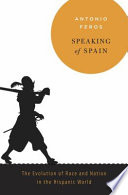

Most ebook files are in PDF format, so you can easily read them using various software such as Foxit Reader or directly on the Google Chrome browser.
Some ebook files are released by publishers in other formats such as .awz, .mobi, .epub, .fb2, etc. You may need to install specific software to read these formats on mobile/PC, such as Calibre.
Please read the tutorial at this link: https://ebookbell.com/faq
We offer FREE conversion to the popular formats you request; however, this may take some time. Therefore, right after payment, please email us, and we will try to provide the service as quickly as possible.
For some exceptional file formats or broken links (if any), please refrain from opening any disputes. Instead, email us first, and we will try to assist within a maximum of 6 hours.
EbookBell Team

5.0
58 reviewsAntonio Feros traces evolving ideas of Spanish nationhood and Spanishness in the discourses of educated elites, who debated whether the union of Spain’s kingdoms created a single fatherland (patria) or whether Spain remained a dynastic monarchy comprised of separate nations. If a unified Spain was emerging, was it a pluralistic nation, or did “Spain” represent the imposition of the dominant Castilian culture over the rest? The presence of large communities of individuals with Muslim and Jewish ancestors and the colonization of the New World brought issues of race to the fore as well. A nascent civic concept of Spanish identity clashed with a racialist understanding that Spaniards were necessarily of pure blood and “white,” unlike converted Jews and Muslims, Amerindians, and Africans.
Gradually Spaniards settled the most intractable of these disputes. By the time the liberal Constitution of Cádiz (1812) was ratified, consensus held that almost all people born in Spain’s territories, whatever their ethnicity, were Spanish.